August 24 stands as one of history’s most eventful days, witnessing the rise and fall of empires, groundbreaking discoveries, and moments that shaped our modern world across centuries of human achievement.

Politics and Government Events on August 24
1911 – Manuel de Arriaga Elected First President of Portugal
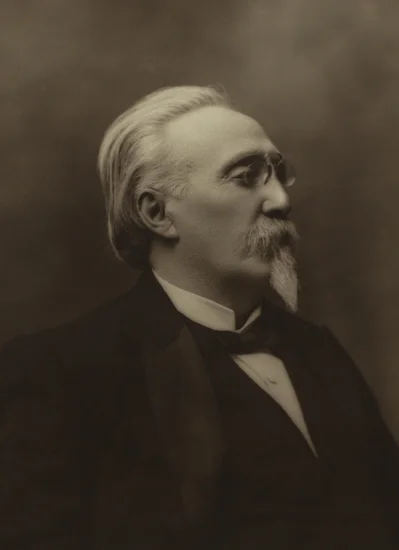
Manuel de Arriaga achieved historic significance by becoming Portugal’s first elected president following the establishment of the Portuguese Republic. His election marked the definitive end of centuries of monarchical rule in Portugal.
The new president faced the enormous challenge of stabilizing a nation still recovering from political revolution. Arriaga’s presidency established crucial precedents for democratic governance in the young Portuguese Republic.
1931 – UK National Government Formation
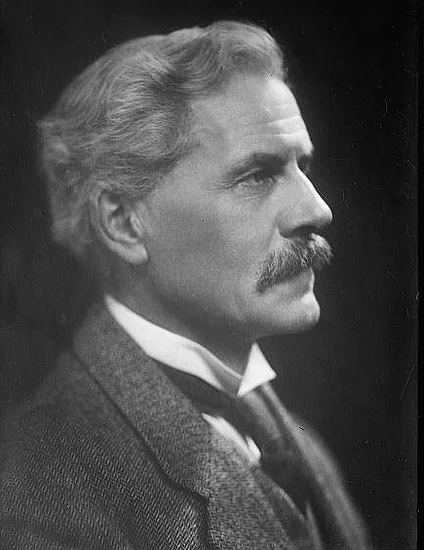
Britain’s Second Labour Government collapsed under the weight of economic crisis, leading to the formation of a National Government. Prime Minister Ramsay MacDonald controversially remained in office despite leaving the Labour Party.
This political realignment fundamentally altered British politics during the Great Depression. The National Government would dominate British politics throughout the turbulent 1930s, navigating both economic recovery and rising international tensions.
1949 – NATO Treaty Takes Effect
The North Atlantic Treaty Organization officially came into existence as the founding treaty entered into force. This marked the formalization of Western military alliance against Soviet expansion in Europe.
NATO’s establishment represented a revolutionary shift in American foreign policy from isolationism to permanent international engagement. The alliance would become the cornerstone of Western defense strategy throughout the Cold War era.
1991 – Ukraine Declares Independence
Ukraine proclaimed its independence from the Soviet Union in a momentous declaration that accelerated the USSR’s dissolution. The Supreme Soviet of Ukraine voted overwhelmingly to establish the nation as an independent state.
This bold move inspired other Soviet republics to pursue their own independence movements. Ukraine’s declaration represented one of the most significant geopolitical shifts in modern European history.
1991 – Gorbachev Resigns from Communist Party

Mikhail Gorbachev stepped down as head of the Communist Party of the Soviet Union, effectively ending his control over the rapidly disintegrating empire. His resignation marked the beginning of the final chapter of Soviet history.
The reformist leader’s departure from party leadership left the Soviet Union without effective central authority. This power vacuum accelerated the complete collapse of the communist system across Eastern Europe.
2016 – Erin O’Toole Elected Conservative Leader

Erin O’Toole secured the leadership of Canada’s Conservative Party in a decisive victory that reshaped Canadian federal politics. His election represented a shift toward a more moderate conservative approach.
O’Toole’s leadership victory positioned him as the primary opposition to Justin Trudeau’s Liberal government. His election demonstrated the Conservative Party’s attempt to broaden its appeal to Canadian voters.
Military and Naval History on August 24
1914 – German Forces Capture Namur
German armies successfully captured the Belgian fortress city of Namur during the opening weeks of World War I. This victory opened the path for German forces to advance deeper into Belgium and toward France.
The fall of Namur demonstrated the effectiveness of German military strategy and heavy artillery against traditional fortifications. This tactical success contributed to the rapid German advance through Belgium in the early war period.
1914 – Battle of Cer Ends in Allied Victory
The Battle of Cer concluded with the first significant Allied victory of World War I as Serbian forces defeated the Austro-Hungarian army. This triumph provided much-needed morale boost to the Allied cause.
Serbian military success demonstrated that the Central Powers were not invincible and could be defeated through determined resistance. The victory established Serbia as a formidable military force in the Balkan theater.
1937 – Basque Army Surrenders in Spanish Civil War
The Basque Army formally surrendered to Italian forces following the Santoña Agreement during the Spanish Civil War. This capitulation marked the end of organized Basque resistance in northern Spain.
The surrender represented a significant victory for Franco’s Nationalist forces and their Italian allies. This military success consolidated Nationalist control over crucial industrial regions in northern Spain.
1942 – Battle of Eastern Solomons
The Japanese aircraft carrier Ryūjō was sunk during the Battle of the Eastern Solomons, while USS Enterprise sustained heavy damage. This naval engagement marked another crucial Pacific theater confrontation.
The battle demonstrated the continuing importance of carrier-based aviation in Pacific naval warfare. Both sides suffered significant losses, but the engagement helped establish American naval superiority in the region.
1944 – Allied Attack on Paris Begins
Allied forces launched their assault on German-occupied Paris, beginning the liberation of the French capital. This offensive marked the culmination of the successful Normandy campaign.
The attack on Paris represented the symbolic heart of the Allied effort to liberate Western Europe from Nazi occupation. The successful liberation would restore French sovereignty and pride after years of occupation.
Science and Discovery Milestones on August 24
1998 – First Human RFID Implantation
Scientists successfully tested the first radio-frequency identification chip implanted in a human subject in the United Kingdom. This groundbreaking experiment opened new possibilities for medical monitoring and identification technology.
The RFID implantation represented a significant step toward integrating digital technology with human biology. This pioneering research would eventually lead to widespread applications in medical devices and security systems.
2006 – Pluto Reclassified as Dwarf Planet
The International Astronomical Union redefined the term “planet,” resulting in Pluto’s reclassification as a dwarf planet. This controversial decision fundamentally changed our understanding of the solar system’s structure.
The reclassification reflected advances in astronomical knowledge and the discovery of numerous similar objects in the outer solar system. This scientific revision sparked widespread public debate about planetary classification criteria.
2016 – Discovery of Proxima Centauri b
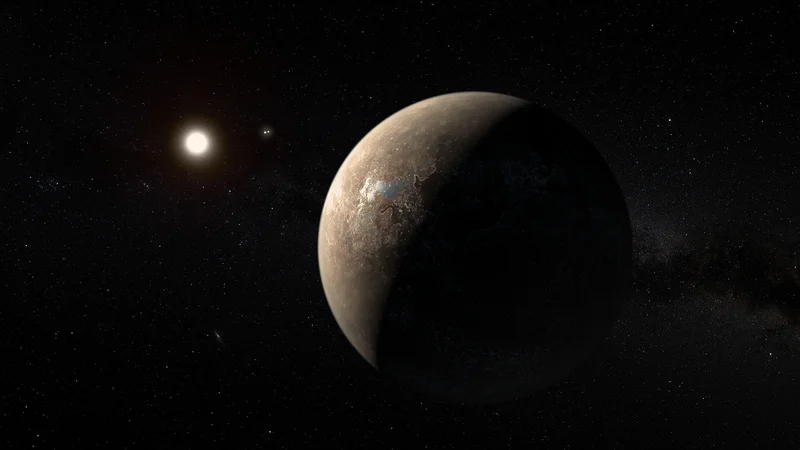
The European Southern Observatory announced the discovery of Proxima Centauri b, the closest known exoplanet to Earth. This potentially habitable world orbits within the habitable zone of our nearest stellar neighbor.
The discovery represented a major milestone in the search for potentially life-bearing worlds beyond our solar system. Scientists immediately began planning future missions to study this tantalizingly close exoplanet.
2017 – Taiwan Launches Formosat-5 Satellite
Taiwan’s National Space Agency successfully launched the Formosat-5 observation satellite into orbit. This achievement demonstrated Taiwan’s growing capabilities in space technology and earth observation.
The satellite launch marked Taiwan’s continued advancement in aerospace technology and scientific research. Formosat-5 would provide valuable data for environmental monitoring and disaster management applications.
Cultural and Arts Events on August 24
1963 – Buddhist Crisis Escalates in South Vietnam

The Buddhist crisis in South Vietnam intensified following the Xá Lợi Pagoda raids, prompting U.S. diplomatic intervention. The State Department cabled the American Embassy in Saigon to encourage military action against President Diệm.
This religious and political crisis highlighted the deep divisions within South Vietnamese society. The Buddhist protests revealed the unpopularity of the Diệm regime and contributed to its eventual downfall.
1967 – Yippies Disrupt NYSE Trading

Led by Abbie Hoffman, Youth International Party activists threw dollar bills from the New York Stock Exchange viewing gallery, temporarily halting trading. This theatrical protest symbolized countercultural opposition to capitalism and materialism.
The dramatic demonstration captured national attention and embodied the spirit of 1960s anti-establishment activism. The protest became an iconic moment in the history of American social movements.
1970 – Sterling Hall Bombing
Vietnam War protesters bombed Sterling Hall at the University of Wisconsin-Madison, triggering an international manhunt for the perpetrators. This act of domestic terrorism marked an escalation in anti-war activism.
The bombing represented the radical fringe of the anti-war movement and generated widespread condemnation. The incident highlighted the dangerous extremes to which some protesters were willing to go.
Religious and Social Events on August 24
1929 – Hebron Massacre Continues

The second day of the Hebron massacre during the 1929 Palestine riots resulted in the deaths of 65-68 Jews and forced the remaining Jewish community to flee. This tragic event marked a turning point in Jewish-Arab relations in Palestine.
The massacre demonstrated the deep-seated tensions between Jewish and Arab communities in the British Mandate. The violence foreshadowed the prolonged conflict that would characterize the region for decades.
1950 – Edith Sampson Becomes First Black UN Delegate

Edith Sampson made history by becoming the first African American delegate to the United Nations. Her appointment represented a significant milestone in both American diplomacy and civil rights progress.
Sampson’s historic role challenged racial barriers in international diplomacy and demonstrated America’s evolving commitment to equality. Her appointment helped project a more inclusive image of American democracy worldwide.
1989 – Tadeusz Mazowiecki Becomes Prime Minister

Tadeusz Mazowiecki was chosen as the first non-communist prime minister in Central and Eastern Europe since World War II. His selection marked the beginning of democratic transition in the Soviet sphere.
This historic appointment represented the peaceful collapse of communist authority in Poland. Mazowiecki’s government would serve as a model for democratic transition throughout the former Soviet bloc.
Business and Economic Events on August 24
1989 – Colombian Drug War Escalates
Colombian drug cartels declared “total war” on the government, marking a dramatic escalation in the conflict between law enforcement and narcotics traffickers. This declaration intensified violence throughout Colombia.
The drug war represented one of the most serious challenges to Colombian state authority in modern history. The conflict would reshape Colombian politics and society for decades to come.
1995 – Microsoft Windows 95 Released
Microsoft released Windows 95 to the North American public, revolutionizing personal computing with its user-friendly interface and advanced features. This operating system transformed how people interacted with computers.
Windows 95’s release marked Microsoft’s dominance in the personal computer market and accelerated the adoption of home computing. The operating system’s success established Microsoft as a technology industry leader.
1981 – Mark David Chapman Sentenced

Mark David Chapman received a sentence of 20 years to life in prison for murdering Beatles legend John Lennon. This legal resolution provided some closure to one of the most shocking celebrity murders in history.
The sentencing concluded a tragic chapter in music history and cultural memory. Chapman’s conviction ensured justice for the senseless killing of one of the world’s most beloved musicians.
Transportation and Infrastructure on August 24
1909 – Panama Canal Construction Begins

Workers began pouring concrete for the Panama Canal, marking a crucial milestone in one of history’s greatest engineering projects. This massive undertaking would revolutionize global maritime transportation.
The concrete pouring represented the culmination of years of planning and preparation for the canal’s construction. This infrastructure project would fundamentally alter international trade patterns and naval strategy.
1932 – Amelia Earhart’s Transcontinental Flight

Amelia Earhart became the first woman to fly solo across the United States non-stop, completing the journey from Los Angeles to Newark, New Jersey. This achievement demonstrated both her exceptional piloting skills and the advancing capabilities of aviation technology.
Earhart’s transcontinental flight broke gender barriers in aviation and inspired countless women to pursue careers in flying. Her achievement represented a significant milestone in both aviation history and women’s rights.
1933 – Crescent Limited Train Derailment

The Crescent Limited passenger train derailed in Washington, D.C., after a bridge was washed out by the Chesapeake-Potomac hurricane. This disaster highlighted the vulnerability of transportation infrastructure to extreme weather events.
The derailment demonstrated the need for improved weather monitoring and infrastructure resilience. This tragic accident led to enhanced safety protocols for railroad operations during severe weather conditions.
2001 – Air Transat Flight 236 Emergency Landing

Air Transat Flight 236 lost all engine power over the Atlantic Ocean, forcing pilots to conduct a miraculous emergency landing in the Azores. This incident showcased exceptional pilot skill and aircraft engineering.
The successful emergency landing saved all 306 passengers and crew members aboard the aircraft. This aviation miracle demonstrated the importance of pilot training and aircraft safety systems.
Sports and Recreation on August 24
1936 – Australian Antarctic Territory Created
Australia officially established the Australian Antarctic Territory, claiming a vast portion of the Antarctic continent for scientific research and exploration. This territorial claim reflected growing international interest in Antarctic resources and research opportunities.
The territory’s creation positioned Australia as a major player in Antarctic affairs and scientific research. This claim would later influence international Antarctic treaty negotiations and scientific cooperation agreements.
1954 – Communist Control Act Enacted
The Communist Control Act went into effect, officially outlawing the Communist Party in the United States. This legislation represented the height of McCarthyism and anti-communist sentiment in American politics.
The act reflected widespread fear of communist infiltration during the Cold War era. This controversial legislation raised significant questions about civil liberties and freedom of political association in America.
1992 – Hurricane Andrew Strikes Florida
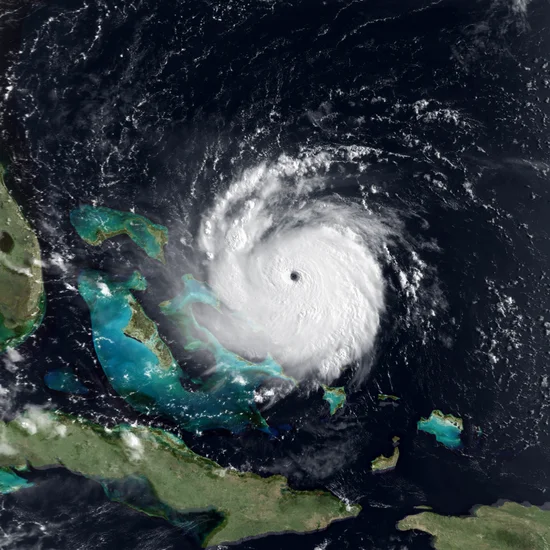
Hurricane Andrew made landfall in Homestead, Florida, as a Category 5 hurricane, causing up to $25 billion in damages. This devastating storm became one of the costliest natural disasters in American history.
The hurricane’s destruction highlighted the vulnerability of coastal communities to extreme weather events. Andrew’s impact led to significant improvements in building codes and emergency preparedness procedures.
Notable Births on August 24
1920 – Alex Colville Born

Canadian painter Alex Colville entered the world, destined to become one of Canada’s most celebrated realist artists. His childhood in the Maritime provinces profoundly influenced his artistic vision and subject matter.
Colville would later develop a distinctive style combining precise technique with deeply symbolic content. His paintings captured the essence of Canadian life and became iconic representations of national identity.
1922 – Howard Zinn Born

American historian Howard Zinn was born, future author of the influential “A People’s History of the United States.” His working-class background shaped his perspective on American history and social justice.
Zinn would revolutionize historical writing by focusing on ordinary people rather than political elites. His scholarly work inspired generations of historians to examine history from the bottom up.
1927 – Harry Markowitz Born
American economist Harry Markowitz was born, future Nobel Prize laureate who revolutionized investment theory. His mathematical approach to portfolio management transformed modern finance.
Markowitz would develop Modern Portfolio Theory, fundamentally changing how investors approach risk and return. His groundbreaking work earned him the Nobel Prize in Economics and transformed financial markets.
1947 – Paulo Coelho Born

Brazilian author Paulo Coelho was born, destined to become one of the world’s most widely read contemporary writers. His early struggles with mental health and spiritual searching influenced his later literary works.
Coelho would achieve international fame with “The Alchemist,” inspiring millions of readers worldwide. His philosophical novels blend spirituality with adventure, reaching audiences across cultural boundaries.
1958 – Steve Guttenberg Born

American actor Steve Guttenberg was born, future star of numerous popular comedies during the 1980s. His natural comedic timing and everyman appeal made him a household name.
Guttenberg would achieve fame in blockbuster films like “Police Academy” and “Three Men and a Baby.” His performances defined 1980s comedy and entertained audiences worldwide.
1965 – Reggie Miller Born

American basketball player Reggie Miller was born, future NBA legend known for his exceptional three-point shooting. His competitive spirit and clutch performances made him one of basketball’s most memorable players.
Miller would spend his entire career with the Indiana Pacers, becoming synonymous with the franchise. His playoff performances and rivalry with the New York Knicks created legendary moments in NBA history.
1973 – Dave Chappelle Born

American comedian Dave Chappelle was born, future star who would revolutionize stand-up comedy and television. His sharp wit and social commentary made him one of the most influential comedians of his generation.
Chappelle would achieve fame with “Chappelle’s Show,” tackling controversial topics with humor and insight. His comedy challenged social norms while entertaining audiences with brilliant character work.
Notable Deaths on August 24
1954 – Getúlio Vargas Dies
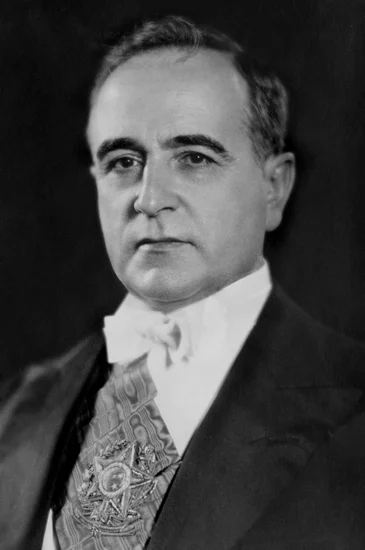
Brazilian president Getúlio Vargas died by suicide, ending the life of one of Brazil’s most influential political figures. His death marked the end of an era in Brazilian politics and governance.
Vargas had dominated Brazilian politics for decades, implementing major social and economic reforms. His tragic death created a political crisis that would reshape Brazil’s democratic development.
1967 – Henry J. Kaiser Dies

American industrialist Henry J. Kaiser died, concluding the remarkable career of a pioneering businessman and shipbuilder. His innovations in mass production revolutionized American industry during World War II.
Kaiser’s Liberty Ships helped win the war by rapidly supplying Allied forces worldwide. His entrepreneurial spirit and industrial innovations established him as one of America’s greatest industrialists.
1978 – Louis Prima Dies

American entertainer Louis Prima died, ending the career of one of the most energetic and influential performers in American popular music. His blend of jazz, swing, and comedy entertained audiences for decades.
Prima’s exuberant performances and musical innovations influenced countless musicians and entertainers. His legacy continued through recordings that captured his unique style and infectious energy.
2004 – Elisabeth Kübler-Ross Dies

Swiss-American psychiatrist Elisabeth Kübler-Ross died, concluding the life of a pioneering researcher in death and dying. Her groundbreaking work transformed how society approaches terminal illness and grief.
Kübler-Ross developed the famous “Five Stages of Grief” model that helped countless people understand the dying process. Her compassionate approach revolutionized palliative care and death education.
2021 – Charlie Watts Dies

English musician Charlie Watts died, ending the remarkable career of the Rolling Stones’ legendary drummer. His steady rhythm and understated style provided the backbone for one of rock’s greatest bands.
Watts’ drumming defined the Rolling Stones’ sound for nearly six decades of rock history. His death marked the end of an era for one of the world’s most enduring and influential rock bands.
Holidays and Observances on August 24
Independence Day Ukraine

Ukraine celebrates Independence Day, commemorating the nation’s declaration of independence from the Soviet Union in 1991. This national holiday represents Ukraine’s determination to maintain sovereignty and democratic values.
The celebration includes military parades, cultural events, and patriotic displays throughout the country. Independence Day serves as a reminder of Ukraine’s ongoing struggle for freedom and self-determination.
National Waffle Day United States
Americans celebrate National Waffle Day, honoring the beloved breakfast treat that has become a staple of American cuisine. This unofficial holiday celebrates the waffle’s cultural significance and culinary versatility.
Restaurants and diners across the country offer special waffle promotions and creative variations. The day encourages people to appreciate this simple pleasure that brings families together around breakfast tables.
International Strange Music Day

Music lovers worldwide observe International Strange Music Day, celebrating unconventional and experimental musical expressions. This unique holiday encourages people to explore unfamiliar genres and artistic boundary-pushing.
The observance promotes musical diversity and challenges listeners to expand their artistic horizons. Musicians and fans use this day to share unusual compositions and discover new forms of musical expression.
